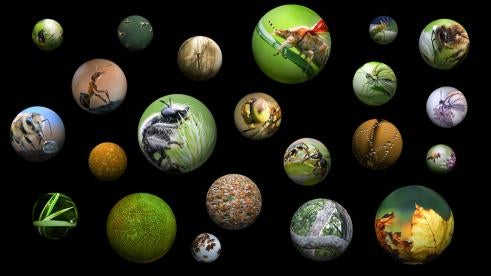According to the Advocate General Bobek, whole insects intended for human consumption which are to be consumed as such, fall outside the scope of the Novel Food Regulation.
In the case C‑526/19, the Advocate General delivered his Opinion and explained why, in his view, whole insects would not be Novel. He noted that:
“While there is little doubt that whole animals, including insects, are indeed now covered by the new Regulation 2015/2283 [the Novel Food Regulation], that was, on its text, clearly not the case with regard to Regulation No 258/97 [the ‘old’ Novel Food Regulation]. Moreover, the purposive enlargement of the scope of a secondary law instrument against its clear wording, as essentially suggested by the French and Italian Governments, has, in my view, little to do with interpreting an existing text, but pertains to effectively writing a new one”
Among the arguments of Advocate General Bobek, it should be noted that:
- “Article 1(2) of Regulation No 258/97 (the ‘old’ Novel Food Regulation) contained two cumulative conditions for foods or food ingredients to be qualified as novel and fall under that regulatory regime. First, thetemporal condition: Regulation No 258/97 applied to the placing on the market, within the then Community, of foods and food ingredients which had not previously (i.e. before 1997) been used for human consumption to a significant degree within the Community. Second, there was the substantive condition: food and food ingredients needed to fall under one of the categories listed in Article 1(2).”
- “Regulation No 258/97 appears to have aimed at ingredients from animals and not whole animals because the overall intention of the regulation was at micro, not macro, level alterations to the food. Broader capture with regard to (whole) plants, when compared with (whole) animals, seems to be the choice because, at the time of its adoption, although plants had been modified for decades, Europeans had not yet started to change their consumption habits with regard to animals. Thus, there was presumably no need for any such inclusion of whole animals, with the exception of those already covered by other letters of Article 1(2).”
- “The scope of definition concerning foods from animals contained in Article 3(2)(a)(v) of Regulation 2015/2283, when compared with Article 1(2)(e) of Regulation No 258/97, is very clearly an amendment, considerably expanding the scope of that definition.”
- “In conclusion, without those elements being in fact explicitly raised, since such issues would indeed pertain to the validity of a measure, it suffices to mention that, on the one hand, as outlined in the previous points of this section, Regulation No 258/97 contained safeguard and review clauses and procedures, which were apparently not made use of. On the other hand, the EU legislature has indeed been responsive to social and scientific change, as far as novel foods consisting of animals are concerned, since the adoption of a new regulation, Regulation 2015/2283, rather clearly demonstrates. The latter regulation is nonetheless not to be given de facto retroactive application by questionable ‘judicial interpretation’ of its predecessor.”
Also, acknowledging that “the arguments raised by the French Government under the heading of ‘general scheme’ belong to the category of ‘why not also’ arguments, which, at the most basic level, and in the realm of interpretation of a legal text, can simply be answered with ‘because it does not say so.”, the Advocate General took the opportunity to give a humorous lesson in European law to the French and Italian Governments, recalling in particular that:
“In the legislative procedures, as a part of the political and deliberative process, both the public as well as expert opinions will be heard, and their views hopefully reflected. By contrast, courts, especially those not collecting any expert opinions or not hearing expert witnesses, are simply ill-equipped for decisions on such technical matters, in particular those where there is little or no scientific knowledge or consensus.
Their role in such areas should thus best remain a minimalist one, focusing essentially on two elements: the verification of the existence of flexibility, safeguards, and avenues for ongoing adaptation and precaution embedded within the instrument at issue, i.e. the procedural dimension of managing risk and uncertainty, on the one hand, with only limited substantive intervention in exceptional cases of legislative irresponsiveness to radically changed social and technical circumstances, on the other hand.”
What remains to be seen is if the Court will follow the Opinion of its Advocate General and embody the fact that whole mealworms, locusts and crickets are not Novel Food.



 i
i

